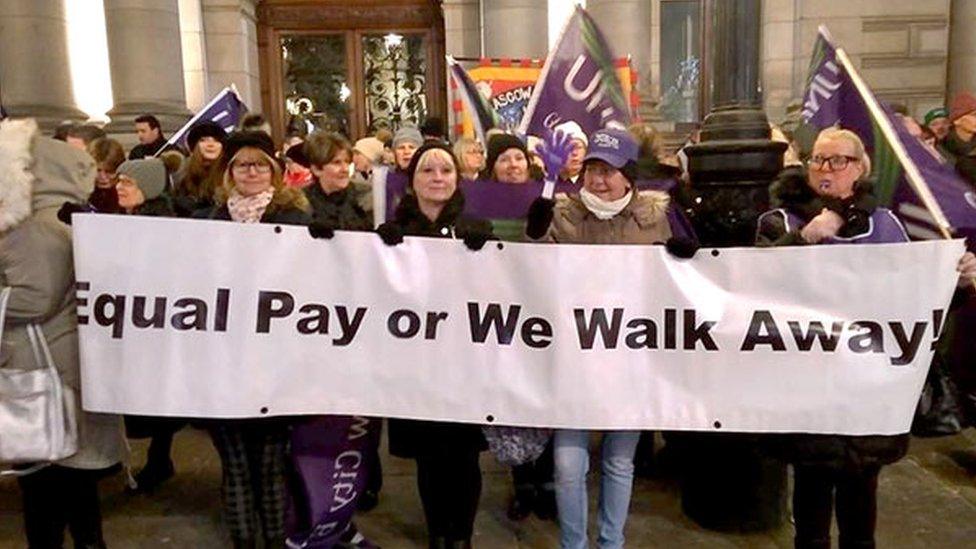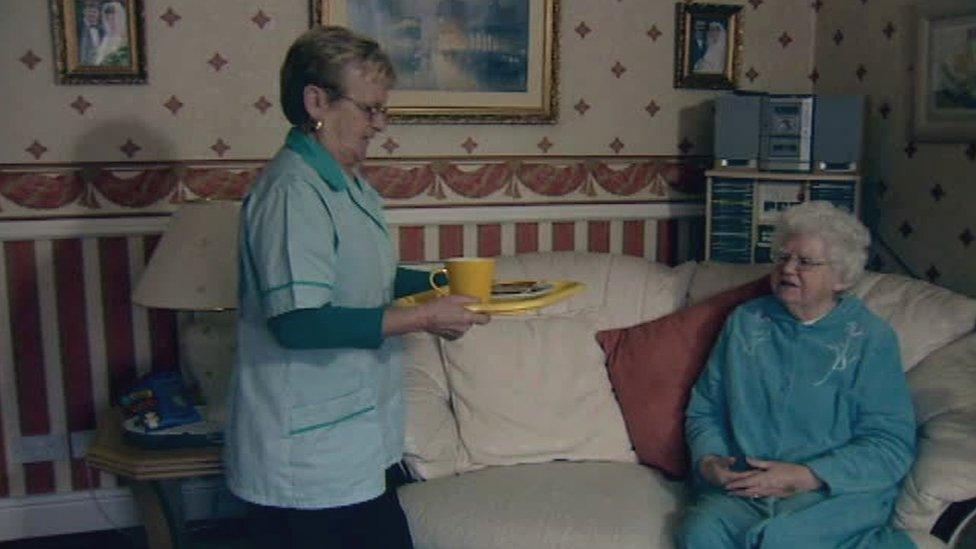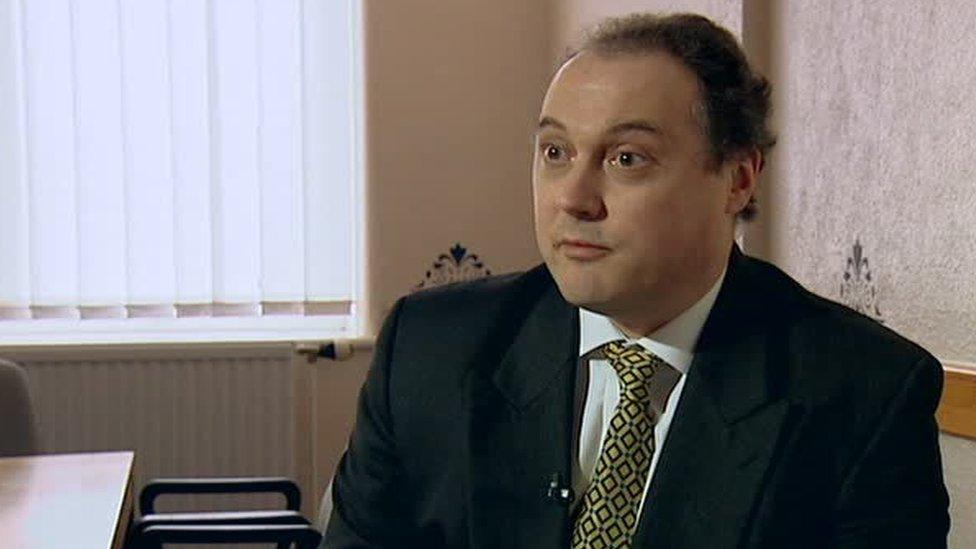Glasgow equal pay comments 'disgraceful'
- Published

Some claim the issue could cost the council as much as £1bn to resolve
The lawyer acting for thousands of low-paid women making equal pay claims against Glasgow City Council has hit out at its leader Susan Aitken.
She earlier rubbished the suggestion the bill to settle the claims could be between £500m and £1bn, saying the figures were "plucked out of thin air".
Lawyer Stefan Cross, who came up with the figures, said her comments were "absolutely disgraceful".
He said his team had spent hundreds of hours making detailed calculations.
What are the equal pay claims about?

Female workers such as carers claim they have been paid less than equal roles filled by men
The claims relate to a Job Evaluation Scheme introduced in 2006, which had been intended to eliminate gender pay inequality.
However, the new system built in a three-year payment protection for men who lost out on bonuses, which was last year ruled discriminatory.
Court battles
A long court battle has also raged over the design of the scheme itself.
It saw mainly female workers, in jobs such as caterers, cleaners and care assistants, paid less than male workers in jobs that were deemed to be of equal value, such as refuse collection.
After years of employment tribunal and court battles, the council said earlier this year that "negotiation" would solve the dispute, which currently affects about 8,000 employees.

Glasgow City Council leader Susan Aitken said substantial progress had been made
Ms Aitken became leader of Glasgow City Council in May 2017 after the SNP took control from Labour, who had run the local authority for decades.
She said the move drew a line under what she called "a decade of litigation" under the previous Labour administration.
Same mistakes
On Thursday, she told BBC radio's Good Morning Scotland programme that the council was in negotiations and a final settlement was expected by the end of the year, with payouts beginning in the next financial year.
However, she refused to estimate how much the claims could cost.
Mr Cross told Good Morning Scotland that Glasgow City Council was making the same mistakes as Birmingham City Council, which ended up selling off the National Exhibition Centre and slashing services in a bid to pay its equal pay claims.
"When we won the case against Birmingham, I publicly stated that the value of the claims was somewhere in the region of £600m.
"The leader of the council told me I was an idiot and the total cost would never be more than £60m.
"He then carried out litigating the cases and their bill turned out to be £1.2bn.
"Glasgow are doing exactly the same thing and the same sort of numbers are involved."

Stefan Cross also worked on the claim against Birmingham City Council
Mr Cross said the equal pay claims go back 12 years and they are still continuing.
He said it could be another three years before the grading system was sorted out.
The lawyer, who works for Action 4 Equality, gave the example of women being "systematically" paid £4,000 a year less than men.
'Really bizarre'
He said that figure alone, multiplied by thousands of women over 15 years, would give an equal pay bill of £750m.
"I've been doing this for 30 years and I don't pluck figures out of the air," he said.
Mr Cross said the Glasgow City Council leadership was refusing to discuss the underlying problems.
"They have now told us to go away for two months and come back and we will give you a number," he said.
"This is not negotiations. It is really bizarre. If they want a negotiated settlement, which is by agreement, they need to work with us.
"This is why the women who work for Glasgow are so angry they are threatening strike action."
Mr Cross called for the Scottish government to step in to assist Glasgow City Council.
"It is a problem that is bigger than Glasgow City Council and it requires the assistance of Nicola Sturgeon and the SNP government to step in and resolve what is a continuing and longstanding historical problem," he said.